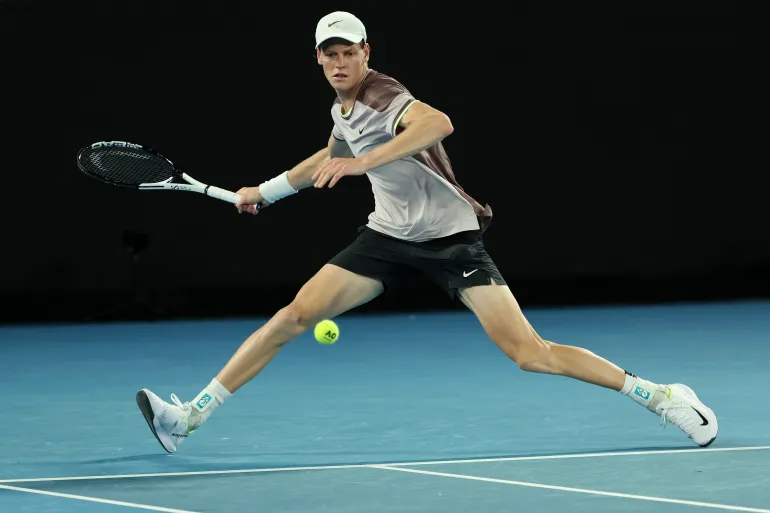A growing number of tennis players, including former top 10 player Denis Shapovalov, have voiced concerns over perceived double standards in the sport following the clearance of world number one Jannik Sinner, who was allowed to continue competing despite failing two drug tests earlier this year.
The International Tennis Integrity Agency (ITIA) announced on Tuesday that an independent tribunal had cleared Sinner after he tested positive for clostebol, a banned substance, during the Indian Wells tournament in March and in a subsequent test days later. Despite these positive tests, the tribunal concluded that Sinner’s explanation—that the substance entered his system through a massage involving a spray used by his physiotherapist—was credible, allowing him to avoid a suspension.
Shapovalov was among the first to express discontent on social media, suggesting that Sinner received preferential treatment. “Can’t imagine what every other player that got banned for contaminated substances is feeling right now,” the Canadian wrote. “Different rules for different players.”
Sinner’s representatives have declined to engage with the criticism, stating that the independent panel’s decision is publicly available and that they stand by the rigorous review process that found Sinner innocent. Sinner’s coach, Darren Cahill, also expressed relief over the decision, emphasizing that Sinner had never intentionally violated anti-doping rules.
However, the decision has sparked widespread debate among players. British player Liam Broady criticized the apparent inconsistency in how doping cases are handled, stating, “Whether Sinner was doping or not, this is not right. Plenty of players go through the same thing and have to wait months or years for their innocence to be declared. Not a good look.”
Tara Moore, a former doubles British number one who was sidelined for 19 months after failing a drug test before eventually being cleared, also pointed out the disparity in treatment between top-ranked players and others. “I guess only the top players’ images matter,” Moore wrote on social media.
The case has drawn further comparisons to other high-profile doping cases, such as that of former Wimbledon champion Simona Halep, who was provisionally suspended in 2022 and later received a four-year ban, reduced to nine months after an appeal.
The Professional Tennis Players Association (PTPA), co-founded by Novak Djokovic, has called for consistency in the anti-doping process. Ahmad Nassar, an executive director of the PTPA, emphasized the need for a clear and uniform system, regardless of a player’s ranking, gender, or nationality. “The absence of a clear and consistent system creates obvious problems for players who are not the perceived ranking, gender, and/or nationality of choice,” Nassar said.
The decision to clear Sinner is still subject to potential appeals by the World Anti-Doping Agency (WADA) or the Italian Anti-Doping Agency. Meanwhile, Australia’s Nick Kyrgios also criticized the ruling, calling it “ridiculous” and arguing that any player who tests positive twice for a banned substance should face a two-year suspension.
As the debate continues, the incident has raised serious questions about the fairness and transparency of the anti-doping system in professional tennis.



